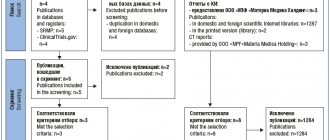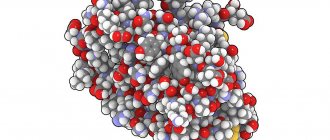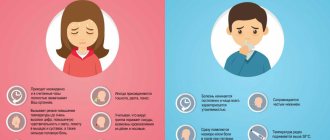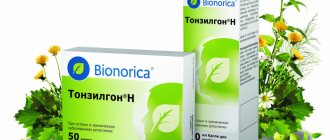According to many of us, antibacterial drugs can be considered a panacea for most diseases that humanity faces.
After all, everyone knows the confirmed historical facts, according to which antibiotics were recognized as the greatest invention of the last century. These drugs helped save millions of lives during wars and epidemics, and now some modern scientists are in the continuous process of searching for new treatment regimens that will certainly lead humanity, if not to eternal life, then to complete victory over most diseases known to science. It would seem that if antibacterial drugs can save lives, then they will definitely help with the flu. And you won’t need any other treatment, just take a pill and the unpleasant symptoms will go away. But why, with all the successes of such therapy, the question still arises about the advisability of their use for influenza? Let's figure it out.
- Possibility of addiction to antibiotics
- Does it make sense to take it for the flu?
- Can children take it: doctors' opinion
- When is it necessary to take antibiotics?
- Antiviral treatment for influenza
The word “antibiotics” translated from ancient Greek means “against life”. In the modern interpretation, these drugs actually suppress the vital activity of pathogens of many diseases.i Historians claim that the great physician and philosopher Avicenna treated his patients with substances similar to modern antibiotics. But antibacterial drugs received widespread recognition only in 1929, when the British scientist Alexander Fleming reported on a new miracle substance that he was able to isolate from mold colonies. This substance was called penicillin. People also called it “magic bullets”, which hit the target precisely at pathogenic microorganisms. The substance found was able to fight staphylococci, streptococci and pneumococci.
Over time, antibiotics were improved, thanks to which doctors were able to save more and more patients who were previously considered hopeless. Cephalosporins, augmentin, macrolides - all these drugs are probably familiar to everyone who has had to fight infectious diseases or treat children for them.
Every year the arsenal of this type of drugs increases. They are the object of study by millions of scientists from the fields of microbiology, pharmacology, medicine and radiobiology. In recent years, hundreds of drugs with different spectrums of action have been discovered. However, a fairly limited number of drugs are still used in practice. This is explained both by the fact that resistance (immunity) can develop quite quickly to drugs in this group, and by the fact that not all drugs can be used for all groups of patients. We must also remember that antibiotics are useless against some diseases. The list of these diseases includes influenza. In most cases, antibiotics are not needed for this disease. We’ll talk about nuances and exceptions separately.
Accustoming the body to antibiotics for influenza
“Can I take antibiotics for the flu?” This is one of the most common questions patients ask doctors. In some cases, patients with influenza infection decide to self-medicate with antibacterial drugs in order to shorten the period of the disease. They believe that antibacterial drugs can quickly eliminate symptoms of the disease such as fever, runny nose, sore throat, headache and pain in muscles and joints.
Unfortunately, as statistics show, self-medication with this type of medication does not lead to the desired results, but causes an increase in antibiotic resistance of the microflora.
A person who uncontrollably takes antibacterial drugs for viral diseases, without consulting a doctor and choosing the dose on his own, may later face the fact that these drugs will no longer be effective in treating various diseases. Bacterial resistance to drugs is a major obstacle to the treatment of a number of dangerous diseases, which leads to treatment failures.
By taking antibiotics for a flu infection without good reason, you risk one day finding yourself in a situation where these drugs will not help you fight serious bacterial diseases.ii The spread of drug-resistant strains of various diseases can lead to unpredictable consequences for humanity.
What is “bacterial resistance”?
Antibiotics typically kill bacteria or stop them from growing and reproducing. However, some bacteria have become resistant to certain antibiotics, so antibiotics do not work against them. Antibiotic resistance develops more quickly when antibiotics are used too often or incorrectly.
Infections caused by such bacteria can sometimes be treated with antibiotics to which the bacteria have not become resistant. Such drugs must be administered intravenously in a medical facility. Infections caused by some types of resistant bacteria cannot be treated.
About antibiotic sensitivity testing
Antibiotics against influenza: is there any point?
Scientists never tire of reminding us that with an exclusively viral etiology (when the disease was caused by viruses), antibacterial drugs are useless or even harmful, since they disrupt the biocenosis of the respiratory tract.iii This can lead to the fact that unusual flora, for example, intestinal flora, will predominate in the respiratory tract , which leads to additional complications.
One of the greatest dangers in the spread of drug resistance is the widespread use of macrolides, a group of antibiotics whose structure is based on a macrocyclic lactone ring. This type of medicine is able to disrupt the formation of bacterial proteins, due to which pathogenic organisms lose their ability to reproduce and are thus destroyed.
With unsystematic and unjustified use, macrolides accumulate and are very slowly removed from cells, which leads to the emergence of virus strains with drug resistance not only to macrolides, but also to other types of antibacterial drugs.iv To restore the sensitivity of the flora after self-medication and the ability to be effectively treated with antibacterial drugs, it is necessary long period of time. Remember: flu and antibiotics can be combined only after consulting a doctor .
Who are antibiotics against?
Viral and bacterial diseases are like a hedgehog and a porcupine: they look similar, but their essence is different. An infectious agent enters the body from the external environment and becomes dangerous only once it enters the cell area. The bacterium also enters the body from the outside, but multiplies on its own. It turns out that the infection can only be destroyed with the cell in which it is located. The fight against bacteria is carried out in a targeted manner.
The origin of the disease can be determined by several signs:
- incubation period - bacteria need 7 to 14 days to spread throughout the body. The virus may appear as early as the next day;
- probability of infection - every healthy person has a risk of catching ARVI. Bacteria multiply more readily in a weakened body. Therefore, complications of a simple cough and other diseases are bacterial in nature.
In addition to the obvious signs, there are hidden ones that only a physician can determine: the appearance of the mucous membrane, the nature of the cough.
Conclusion: the use of antibiotics without prescription is useless. Moreover, an antibacterial course “just in case” will complicate further treatment. While you drink useless medicine, harmful microorganisms multiply throughout the area, weakening the immune system. Bacteria are activated - it seems that an antibiotic is really needed. But the course has already passed, the bacteria have adapted in advance and the therapy is no longer so effective.
Treatment of influenza with antibiotics in children: doctors' opinion
The scientific literature provides various data on the frequency of use of antibacterial drugs for ARVI, including influenza infection in children. According to research, antibiotics are used much more often in the treatment of children than is actually required. In the minds of many parents, influenza and antibiotic treatment are inseparable concepts. Of course, such therapy is often used without a doctor’s prescription. The widespread desire to treat children with antibacterial drugs, whether there is a serious reason for it or not, is observed in all countries of the world. For example, in Canada, almost 15% of children with signs of ARVI are prescribed antibacterial drugs. In Denmark, more than 60% of children under two years of age receive at least one course of this type of medication during the year. And in China, antibacterial drugs are recommended for almost 97% of children with cold symptoms.
The situation is aggravated by the fact that in some countries, including Russia, the sale of antibiotics in most cases is not regulated. All antibacterial drugs (including those used topically) in Russia are currently prescription drugs. However, since there are no actual regulatory measures at the state level for the dispensing of these drugs, they can be freely purchased in government and commercial pharmacies. The drugs are in most cases available without a prescription and are widely used for self-medication.
Many parents believe that it is easier to give their child antibiotics in the form of powders or tablets and thereby try to prevent the development of complications of influenza infection than to wait for a situation to develop when the child will not attend kindergarten or school for weeks. But doctors remind that no antibacterial drugs taken during self-medication and without the advice of a specialist will help protect the child from the development of complications, but will only increase the risk of side effects, including life-threatening ones.
Recommendations from professional communities of pediatricians, general practitioners, and consensus results from physicians in other specialties emphasize the importance of not using antibacterial agents in children with uncomplicated influenza infection. The following clinical manifestations, which are observed in the first 10-14 days of the disease, do not justify the use of antibiotics without compelling reasons:
- cough;
- runny nose;
- increased body temperature;
- redness of the throat;
- hoarseness of voice;
- wheezing;
- bronchial obstruction;
- labored breathing.
Antibiotics for ARVI, including influenza, in adults are also not needed in most cases.
Myths and facts about antibiotics
Antibiotic therapy, like vaccinations, is shrouded in myths, fears and stories of how someone lost their hearing after treatment with antibiotics, got a persistent intestinal disorder, and in general, antibiotics are too dangerous because they kill all living things.
Briefly: yes, antibiotics have serious side effects and, if prescribed incorrectly, can actually cause hearing problems, etc. There are drugs prohibited for children and pregnant women, but in general modern drugs are safe if taken as directed. And now in more detail
For seriously ill patients
Express diagnostics at home. This includes not only taking diagnostic samples, but if necessary, we perform ECGs and ultrasounds at home.
A little history:
At the end of the 19th century, several scientists immediately noticed that penicillin fungus mold accelerates the healing of wounds, but its use was difficult - even with short-term storage, the beneficial properties of the mold were lost. In 1938, scientists from Oxford isolated penicillin in its pure form, for which they received the Nobel Prize. And Zinaida Ermolyeva is considered the mother of domestic antibiotic therapy - in 1942 she developed the first Soviet antibiotic, Krustozin, which immediately found use in military hospitals - mortality from bacterial complications fell sharply. Today there are a great variety of antibiotics; there are even drugs with a cytostatic effect that stop the growth of tumor cells.
The most popular question: are antibiotics and alcohol compatible?
Briefly: there are antibiotics that can be taken with alcohol, and there are those where drinking alcohol is contraindicated. In general, it is better not to stop antibiotic therapy because of a glass of wine, but to abstain from alcohol throughout the entire treatment phase.
Read more: it is better to avoid drinking alcohol during treatment, but for most antibiotics it makes no difference whether you drank or not. However, there are exceptions: some drugs slow down the breakdown of alcohol, this increases the concentration of acetaldehyde, causing unpleasant symptoms, including vomiting. Previously, alcoholism was treated with such antibiotics. Where do the roots of this myth come from: during the war, the production of antibiotics was too expensive, they were isolated repeatedly from the urine of patients, and since beer increased the volume of urine and complicated the process, drinking was banned. Another opinion is that venereologists, when prescribing antibiotics, forbade drinking in order, firstly, to punish patients, and secondly, to reduce the likelihood of accidental contacts and further spread of infection.
Conclusion: it is better to give up alcohol so as not to increase the load on the liver and other organs.
Do you have to complete the course to the end?
Complex issue. Modern pharmacology strives to reduce the time of taking the drug while maintaining the effect. Today, single-dose antibiotics have been developed. Previously, it was believed that by not drinking the course to the end, we increase the resistance of microorganisms. But she appears anyway. Studies have confirmed that a short “impact” course is no different in effectiveness from a long one, and resistance is reduced. Most likely, this is due to the fact that resistant bacteria will remain so, but with long-term antibiotic therapy they will also learn to protect themselves from medicinal components, that is, they will gain additional benefits. At the same time, scientists discovered another interesting feature: bacteria from the walls of the cave, which was hidden from people for about 4 million years, were resistant to at least one modern antibiotic! Moreover, antibiotics are a product of the vital activity of microorganisms; bacteria have been using them for 2 billion years.
Not long ago it turned out that bacteria can destroy antibiotics and this feature is fixed at the genetic level, fixed in DNA - this is how superbugs are obtained. In addition, at the source of infection, bacteria are having their own “war” for territory. Some bacteria destroy others, picking up DNA residues that may contain a resistance gene. Does this mean we will all die from superbugs? No. We must not forget that we have an immune system, and scientists are also developing drugs that do not allow the resistance gene to attach to the transport components of bacteria - plasmids - it is the plasmids that are responsible for the transfer of genetic information.
Be sure to complete the course if an antibiotic is prescribed to treat a chronic infection or severe infections. In acute cases, when treating, for example, acute otitis media, if the condition significantly improves, consult a doctor to adjust your medication schedule; perhaps the doctor will stop the antibiotic, or perhaps not. Everything is individual.
Injections are better
No, injections are not better. Previously, the release of dosage forms that would retain the required bioavailability, storage properties and would not be destroyed in the stomach would be problematic, so doctors preferred injections, especially if the infectious process had gone too far. Today, even in hospitals they try to prescribe tablet forms whenever possible. Their bioavailability is practically not inferior to injectable forms, the only thing is that the tablets begin to act a little later. The exceptions are intravenous injections - the antibiotic acts almost instantly and drugs that are destroyed by enzymes. Injections are painful, stressful especially for children, there are the classic risks of infection, and there is also the risk of abscesses and other complications.
Do you take antibiotics for prevention?
Briefly: yes and no.
Taking a pack of pills to avoid getting sick after hypothermia is not prevention. The so-called preventive use of antibiotics is justified if there is a high risk of severe or dangerous infections. Thus, antibiotic prophylaxis is often prescribed in venereology and other areas of medicine. The norm is to take an antibiotic tablet before and after tooth extraction, installation of a dental implant, and during surgical interventions. Antibiotic prophylaxis is prescribed only by a doctor.
Antibiotics are evil for children and pregnant women
You can often find a pregnant woman who tries to treat infectious processes with home methods, believing that the medicine will harm the unborn child. You need to be aware of the risks first of all: the doctor, of course, tries to minimize the use of medications during this period, but pregnant women undergo operations, dental treatment, a lot of other procedures, and refusal of antibiotics where necessary can lead to infection of the fetus including. WHO regularly updates the list of drugs for pregnant women and children. There are recommended, controlled and spare ones. If you are worried, go to the WHO website - approved drugs are highlighted in green, prohibited drugs are in red, controlled and spare drugs are in yellow.
Without a sensitivity test, there is no point in taking antibiotics
In typical cases, conditions of moderate severity and for obvious reasons - some infectious processes have too typical a clinical picture, which is used as a diagnostic criterion; there is no practical sense in an antibiogram.
How an antibiogram is performed: the doctor takes material, for example, from a wound. In the laboratory, a microorganism is isolated that causes an infectious process (this takes at least 2-3 days), then a pure culture is isolated and, roughly speaking, confetti-sized disks are laid out, which are soaked in an antibiotic. Around the most effective ones there will be a maximum clean zone from bacterial colonies. On average, an antibiogram takes 3-7 days to prepare. Treatment ALWAYS begins immediately; during the course of treatment, the antibiotic may be changed, taking into account the antibiogram data. It is not done in all cases, but in the treatment of chronic infections, complex extensive infections. In typical cases, data show that the effectiveness of first-line antibiotics is not much lower than those selected using an antibiogram.
Do I need to take antibiotics for viral infections?
In short: sometimes you need it, sometimes you don’t.
Antibiotics do not act on viruses, but bacterial complications often develop against the background of viral infections. Often the doctor prescribes antibiotics because patients are waiting for appointments, although physical methods are almost always sufficient to treat acute respiratory viral infections, including influenza. Very rarely, an antibiotic for ARVI is prescribed prophylactically if the patient is weakened, has immunodeficiency, extremely low body weight (in children), or old age.
Antibiotics kill all living things and “burn out” the flora
In short: more likely no than yes.
Antibiotics do not kill any microbial cell; they act selectively, taking into account the biochemistry and characteristics of pathogenic agents - the drug either destroys the wall of the microbial cell, or stops reproduction, or acts on another target. The antibiotic only partially affects “its own” people, but already 3-5 days after the end of the course, and for the majority, after 1-2 days, the intestinal microflora is restored without additional intake of probiotics. There is an opinion that probiotics are useless: in case of serious violations of the flora, they do not help, and a conditionally healthy person recovers on his own after a course of antibiotics. Stories that someone once took a loading dose of an antibiotic and now has dysbiosis for life are fairy tales. But if you want to speed up the restoration of flora, drink kefir.
Antibiotics spoil the immune system and a healthy body is able to cope with infections on its own
Briefly: yes and no
Indeed, for some infections, the doctor does not prescribe an antibiotic. For example, for deep abrasions that have become inflamed, dressings and regular washing are enough, antibiotic therapy for bronchitis and pharyngitis is not always prescribed. But the body cannot cope with all infections on its own. Peritonitis, in general, occurs because you couldn’t handle it yourself. Antibiotics do not affect the immune system: the medicine works separately, and the immune cells work separately. Standard antibiotics do not affect the immune system, but there are antibiotics that are initially cytostatic, and they are called antitumor, and for a number of primary immunodeficiencies, antibacterial drugs are taken for several years.
Express replies:
Do antibiotics damage the liver? No. There are drugs that multiply the side effects of each other. Tell your doctor what medications you are taking so he can choose safe antibiotics.
How to drink it? Read the instructions or ask your doctor. Usually antibiotics are taken 1-2 hours after meals with water. You can’t use milk, kefir, jelly or anything else - the active substance is destroyed.
How to recycle? Expired medications should not be flushed down the drain - they have their own life there, which creates resistance to the drugs. Some cities have collection points for expired medications; if they are not available, pour the medications with sand or soil into a plastic container and dispose of them with household waste. This will reduce the risk of children or animals eating the pills.
Antibiotics should not be given to patients with allergies. Can. If an antibiotic provokes an attack, which most often ends at the level of urticaria and is stopped by a single dose of antihistamines, then another one is selected. Abscesses and purulent inflammations are much more dangerous than short-term urticaria. Modern drugs are synthetic and extremely rarely cause allergies; allergy symptoms often occur against the background of massive death of microorganisms.
Modern meat is laced with antibiotics and is dangerous . No. Antibiotics have always been used in animal husbandry; they in no way affect the human body. There are acceptable standards, farmers are obliged to comply with them.
Conclusion : the prescription of antibiotics must be justified, and the duration of the course is selected individually, taking into account the severity of the condition, danger and characteristics of the infectious process. When a doctor prescribes the same regimen for everyone, this is not entirely correct; drugs need to be selected individually - this concerns the dose, frequency of administration and other features. In our clinic you will find excellent specialists who select treatment in such a way as to cure you in the shortest possible time and without delayed risks to the body. We issue sick leave certificates, we have our own laboratory where you can test for sensitivity to antibiotics, including
When is antibiotic treatment needed for influenza?
There is a very fine line between bacterial infections, for which treatment with antibacterial drugs is indicated, and viral infections, for which antibiotics are not required, which cannot always be quickly established. But there are still certain signals that may indicate that the patient has currently developed a bacterial complication:
- elevated body temperature does not go away for more than 5-6 days and remains at a very high level;
- body temperature dropped, but after 1-2 days it rose again to high numbers;
- after a period of improvement, there was a sharp deterioration in health;
- symptoms are observed that were not there before - increased headaches and cough, ear pain, etc.;
- purulent discharge appears - for example, discharge from the nose has acquired a greenish tint, yellow-white liquid is released from the ear canal, and sputum during expectoration acquires a cloudy grayish tint.
As a rule, bacterial complications in people at risk (children, pregnant women, elderly people) develop rapidly.
All of the above symptoms should alert the patient and force him to immediately consult a doctor. Only a doctor can make the correct diagnosis and decide whether it is necessary to start taking antibiotics. For example, if a viral pathogen of bronchitis is accompanied by a bacterial one and the disease itself is chronic, recurrent or atypical, it is almost impossible to do without antibacterial drugs.
Flu prevention
Preventing a disease is better than dealing with the consequences of incorrect treatment. Of course, vaccination against influenza is the most reliable thing invented. But even vaccination does not guarantee absolute invulnerability. Every day we risk becoming infected: in transport, on the street, even at home. To prevent this from happening, you need to follow a simple flu prevention reminder:
- vitamins are responsible for the stability of the immune system. You can take a pharmacy course, or focus on natural sources. You should pay attention to sour berries and citrus fruits - they contain a lot of vitamin C. Onions and garlic protect well from harmful microorganisms;
- dream - it seems that this is from another area, but no. No matter how sorry it is, it’s worth turning off the series, putting down the book and taking care of your health. Sleep is not only treatment, but also prevention;
- cleaning - there is no need to create sterility, but clean floors and dust-free shelves will reduce the likelihood of illness;
- hygiene - covering ourselves from sneezing people, we calmly touch our faces with the hands we used to press the button in the elevator. Meanwhile, hands are leading as the area of greatest accumulation of infection. Someone sneezed, covered himself with his palm, and opened the door to the store. Then you came and opened the same door and scratched your eye. Therefore, hands should be washed frequently and thoroughly;
- Distance—safety measures need to be taken not only during flu season. Avoiding crowds will save you from going to the doctor;
- mask - if you have to come into contact with people who are coughing, wear a mask. It acts as a barrier to germs and at the same time prevents you from touching the facial area.
The strength of the immune system is developed comprehensively: frequent walks, active walking instead of constantly moving by car. In addition to eating and washing your hands, you need to train your endurance. This does not need to be done sporadically. Just make it a rule to get off the bus a stop earlier and walk. Study the composition of foods, do not forcefully eat.









